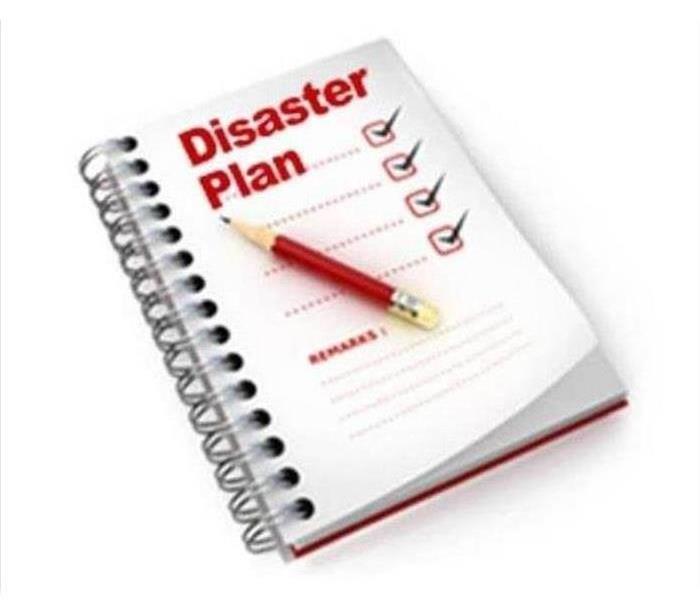Disaster Preparedness
5/20/2020 (Permalink)
We know that living in California comes with the threat of earthquakes that can happen at anytime. However, only about 20% of all earthquakes are strong enough to be felt by humans. Is your family prepared for a large earthquake? What about flooding? Depending on where you live, you may not think flooding is a real danger. Did you know it only takes 6 inches of fast moving water to knock down an adult? Think of what it could do to your home.
We have all heard time and time again that it is a necessity to prepare an emergency kit for everyone within a given household. Have you taken the time to prepare one? When was the last time you went through your kit? Due to the unpredictability of disasters it is recommended that you have a kit: in your house; in each vehicle; and even one at your place of employment.
What should you put in an emergency kit?
1. At least 3 days’ supply of food and water
- 1 gallon of water per person
- Can opener and basic utensils
- Canned and packaged or freeze dried foods
2. Health and Medical supplies
- Minimum of 3 day supply of all medications/prescriptions
- Basic first-aid supplies
3. Toiletries and personal care items
- Soap, shampoo and sun block
- Toothbrushes and toothpaste
- Baby wipes, toilet paper and paper towels
- Contact lenses or spare eyeglasses
4. Safety Items
- Whistle
- Flashlight
- Multipurpose tool (Swiss army knife)
- Emergency blanket (or extra blankets)
- Radio – if battery operated includes extra batteries. Preferred to get a solar or hand-crank radio
5. Documents and Identification
- Insurance cards, Social Security cards (or copy of these documents)
- Medical records and immunization cards
- Family emergency contact information (recommended having a contact outside of the area as phone lines usually will be tied up during a disaster)
6. Extra
- Cash – electronics may be down so don’t plan on being able to go to the bank or use an ATM or credit cards
- Batteries
- Spare car and house keys
- Regional maps – everything is electronic these days but a paper map won’t lose its battery & doesn’t require and internet connection
Check your home for potential Hazards
Just put up your new flat screen? Have some artwork on the wall that you’ve had since college? A family portrait over the fire places? These are great items that turn your house into a home but in the event of an earthquake they can turn into flying weapons if not properly installed or secured to the wall. Here are a few things to double check, perhaps while doing your spring-cleaning this year.
1. Pictures and mirrors: ensure they are firmly anchored to the wall, avoid hanging anything over beds
2. Bookcase and shelves: bolt shelves to studs and strap bookcases to walls
3. Breakables: store in cabinets that have a latch to prevent these items from flying out
4. Curtains and blinds: good to keep closed at night in avoid flying glass in the event that the windows shatter
5. Appliances: retain with straps and hooks
6. Outdoors: secure furniture and accessories. It is a good habit to close any outdoor umbrellas when not in use.
7. Landscaping: regularly remove any dry debris and create a perimeter around your home in case of a fire.
Even though we hope that a major disaster will never strike we would hate for something to happen and not be prepared. It is always better to be safe rather than sorry. You may have to put some time and effort into preparing now, but you’ll be glad you did.

 24/7 Emergency Service
24/7 Emergency Service
